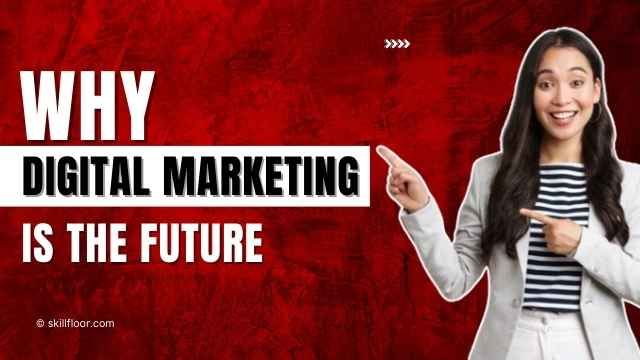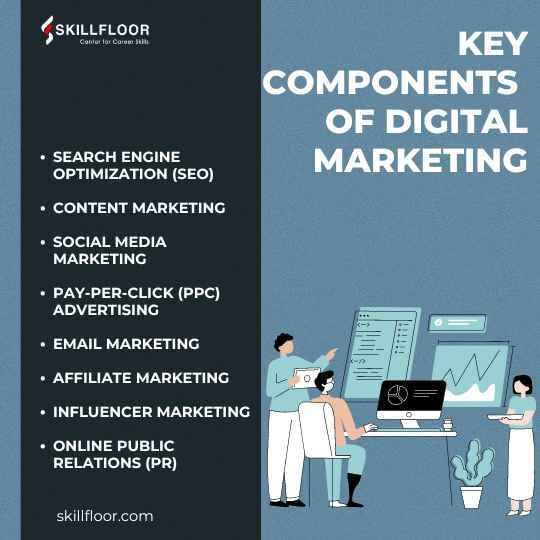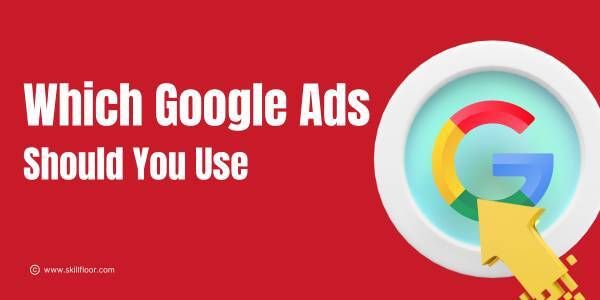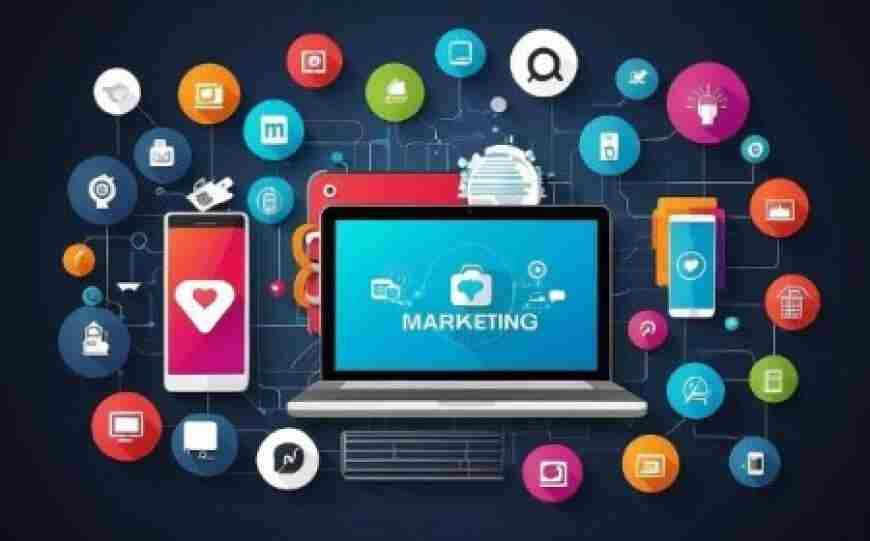The Scope Of Digital Marketing
The vast scope of digital marketing, from SEO to AI-driven tools, helps businesses reach broader audiences, enhance customer engagement, and drive growth.

"Did you know that many businesses still struggle to fully use the potential of digital marketing, with the industry growing faster than ever?" I was asked to discuss this topic in a client meeting a few years back. After more than years of experience in the marketing business, I believe and understand the scope of digital marketing. But as time went on, I understood there was always more to learn. The world of digital marketing is wide, constantly changing, and frequently misunderstood, no matter whether you're in charge of a small business or a large organization. So, what exactly is digital marketing, and why is it so important in today's world?
What is Digital Marketing?
Any type of online marketing is referred to as digital marketing. It's the act of advertising goods, services, or brands via online channels like websites, emails, social media, and search engines. It has developed all over time to include a variety of strategies, such as social media marketing, content marketing, search engine optimization (SEO), and more.
Let's take an example where you run a small bakery. Using social media networks like Instagram and Facebook, you can promote your latest creations while interacting with your audience. By using SEO strategies, you can make sure that your company appears in the top results when someone searches for "best bakery near me." Each of these strategies increases the size of your consumer base and the visibility of your brand, which helps you succeed with digital marketing. The scope of digital marketing includes a wide range of platforms and tools.
Key Components of Digital Marketing
The scope of digital marketing includes more than just one or two channels. It includes a broad range of strategies that help businesses successfully reach their target market. The drawback of digital marketing is its ability to be customized to the unique requirements of any size company. The scope of digital marketing is defined by the following essential elements:

1. Search Engine Optimization (SEO)
SEO is the practice of optimizing a website to rank higher in search engine results pages (SERPs). It involves enhancing various aspects of the website, including its content, structure, and links, to improve visibility when users search for related topics. Effective SEO can drive organic traffic to a website, increasing its reach without the need for paid advertising.
2. Content Marketing
Content marketing focuses on creating and distributing valuable, relevant, and consistent content to attract and retain a clearly defined audience. It aims to establish authority and trust with potential customers through blogs, videos, infographics, and other media. Content marketing is crucial for SEO and social media engagement, as it provides the material that users search for and share.
Social media platforms like Facebook, Instagram, Twitter, and LinkedIn offer unique opportunities for brands to engage with their audience. Social media marketing involves creating and sharing content on these platforms to increase brand awareness, generate leads, and foster community engagement. It allows for real-time interaction and feedback, making it a powerful tool for customer relationship management.
4. Pay-Per-Click (PPC) Advertising
PPC is a model of Internet marketing in which advertisers pay a fee each time their ad is clicked. Essentially, it’s a way of buying visits to your site rather than earning them organically. Google Ads is one of the most common forms of PPC, allowing businesses to bid on keywords that users might search for. PPC campaigns can be highly targeted, ensuring that ads are shown to a specific audience based on demographics, location, and even behaviors.
5. Email Marketing
Email marketing remains a potent tool for businesses to communicate directly with their audience. It involves sending targeted emails to a list of subscribers to promote products, share news, or provide valuable content. Effective email marketing campaigns can nurture leads, enhance customer loyalty, and drive conversions.
6. Affiliate Marketing
Affiliate marketing involves partnering with other businesses or individuals (affiliates) who promote your products or services in exchange for a commission on sales generated through their efforts. This model expands a business's reach and leverages the influence of affiliates to attract new customers.
7. Influencer Marketing
Influencer marketing capitalizes on the popularity and credibility of influencers—individuals with a significant following on social media or other platforms. Brands collaborate with influencers to promote their products or services, tapping into their audience to gain exposure and build trust.

8. Online Public Relations (PR)
Online PR is about managing your brand's presence and reputation across digital channels. It includes strategies like getting coverage on online publications, engaging with bloggers, and handling customer reviews. Effective online PR can enhance credibility and visibility.
These strategies are only a part of the scope of digital marketing. With the constant introduction of new tools and technology, marketers can stay creative and expand their target market.
Benefits of Digital Marketing
Many benefits are available to companies of all sizes from the scope of digital marketing. Digital marketing is accessible, measurable, and highly focused in contrast to traditional marketing strategies, which may ask for large resources and have limited targeting options. Here are a few of the main advantages:
-
Wide Reach: Digital marketing allows businesses to connect with a broad audience, regardless of geographical location. This is particularly useful for businesses looking to expand their reach beyond their local market.
-
Cost-Efficiency: Compared to traditional marketing methods, digital marketing can be more affordable. Many online marketing activities require a smaller budget, making them accessible to businesses of all sizes.
-
Measurable Outcomes: Digital marketing provides detailed insights into campaign performance. Tools like Google Analytics can track user behavior, measure engagement, and monitor conversions, helping you understand what works and what doesn’t.
-
Targeted Marketing: Digital marketing enables precise targeting. You can reach specific groups based on demographics, interests, and behaviors, making your campaigns more effective and relevant to your audience.
-
Interactive Engagement: The interactive nature of digital marketing allows for two-way communication between businesses and their customers. Whether through social media comments or email responses, engaging with your audience fosters stronger relationships.
-
Flexibility and Adaptability: The digital world is ever-changing, and digital marketing can quickly adapt to new trends and technologies. This flexibility ensures that your marketing efforts remain relevant and effective over time.
The Importance of Data in Digital Marketing
Digital marketing varies from traditional marketing in that it can track and measure outcomes immediately. Every click, every view, and every engagement can be tracked and evaluated. Businesses can use this data to improve their strategy and ensure higher returns on investment (ROI).
If your PPC campaign isn't working as it should, for example, you can examine which keywords have failed, change your bidding strategy, and enhance your landing page. When the proper data is available, marketing becomes less of a skill and more of a science.
Why Digital Marketing Matters for Businesses of All Sizes
The marketing field was controlled for a long time by traditional marketing methods like TV advertisements, print ads, and billboards. Even if these strategies are still useful, digital marketing has given small and medium-sized organizations lots of new options.
-
Affordability: The affordability of digital marketing is one of its biggest benefits. Without a huge marketing budget, small businesses can compete with larger ones by putting smart, focused digital strategies into practice.
-
Targeted Marketing: Digital marketing enables companies to target specific groups of people based on their interests, activities, and demographics. This level of specificity ensures that your marketing efforts are reaching the people who are most likely to become your customers.
-
Measurable Results: Digital marketing yields unique, quantifiable outcomes in contrast to traditional marketing, which makes it difficult to determine the exact result of your efforts. With the use of analytics tools, you can track your advancement, evaluate your success, and modify your strategies as needed.
-
Global Reach: A small business can use digital marketing to reach a global audience. You can advertise your goods and services to people all over the world due to the internet, which removes geographic limitations.
AI in digital marketing
Artificial intelligence (AI) in digital marketing refers to the use of intelligent computer systems that help companies in promoting their goods and services online. With AI's speedy analysis of huge amounts of data, marketers can better understand the patterns, preferences, and behaviours of their target audience. This makes it possible for companies to target the correct demographic, produce content that is customized, and improve customer service.
Marketers may save time and effort by using AI solutions to automate routine tasks like sending emails, posting on social media, and running online advertisements. Businesses can use AI-powered predictive analytics to predict future trends and modify their strategies accordingly. AI-powered chatbots are also capable of real-time interaction with customers, offering quick help and responses.
Overall, with automation and analytics, artificial intelligence (AI) helps marketers in decision-making, efficiency, and result improvements. It's an effective tool that is changing how companies handle digital marketing.
The Human Element in Digital Marketing
Artificial intelligence and automation are growing in popularity, but human interaction is still essential in digital marketing. Every great marketing campaign still focuses on understanding customers' needs, establishing real connections with them, and offering value.
Consider a customer who posts a negative review about your product online. Your connection with that customer and other readers of the review could be made or broken by how you reply to that review. A careful, caring answer shows there is a real person behind the organization, one who cares about the satisfaction of the customers.
Even if technology can make marketing campaigns run more smoothly, personal connection and authenticity are valuable.
The Future of Digital Marketing
Digital marketing has a dynamic future. The industry will keep growing as a result of advances in technology, changes in customer behaviour, and changes in market demand. The following are some patterns that are growing:
Voice Search Optimization: As voice assistants like as Alexa, Siri, and Google Assistant become more popular, voice search optimization is becoming more important. Nowadays, companies are making their content more conversational and lengthy voice queries-friendly.
Video Marketing: Studies show that viewers find video information to be more interesting than text or still photos. Already, platforms such as Instagram Reels, TikTok, and YouTube use the potential of video marketing.
AI and Automation: Businesses are using AI-driven marketing technologies to simplify customer care, personalize content, and even analyze customer behaviour.
Interactive Content: Interactive elements like polls, quizzes, and interactive shows will be used in content marketing in the future. By drawing visitors in deeper and keeping them on your website longer, this kind of content improves conversion rates and improves SEO rankings.
Augmented Reality (AR) and Virtual Reality (VR): Virtual reality (VR) and augmented reality (AR) are becoming popular technologies in digital marketing. For example, augmented reality (AR) improves online shopping by enabling buyers to "try" things before making decisions.
The scope of digital marketing will change going forward as a result of these factors and many others. Early implementation of these trends by businesses will provide them with a competitive edge.
The Endless Opportunities of Digital Marketing
The scope of digital marketing presents countless options for companies of all sizes in today's fast-paced environment. Every component, from content marketing to paid advertising, social media to SEO, is essential to helping companies reach their target market and achieve their goals.
While there are challenges to overcome, such as information saturation, privacy issues, and staying current with trends, the benefits could be significant. Through a combination of data acceptance, industry trends understanding, and human interaction, organizations may succeed in the competitive environment of online. Furthermore, digital marketing courses open doors to more job opportunities, equipping individuals with in-demand skills such as SEO, content creation, and analytics. These courses prepare professionals to navigate the dynamic digital landscape, making them valuable assets in the job market.
Advanced Digital Marketing Trends Every Learner Should Know
Staying ahead means continually updating your skills with the latest strategies and tools. Whether you're a student, a marketing professional, or a business owner, understanding advanced digital marketing trends is essential for staying competitive. These trends not only reshape how brands interact with consumers but also redefine the skills marketers need to succeed.
1. The Rise of Artificial Intelligence (AI) in Marketing
AI has moved from a buzzword to a core strategy in digital marketing. Today, AI powers everything from content creation and customer segmentation to predictive analytics and campaign automation.
Key AI-Driven Marketing Applications:
-
Hyper-Personalization: AI algorithms analyze user behavior to deliver tailored content, increasing engagement and conversion rates. Personalized email campaigns driven by AI have been shown to improve open rates by up to 41%.
-
Predictive Analytics: Platforms like Salesforce and Adobe Sensei use AI to forecast user actions, enabling marketers to proactively target audiences with timely offers.
-
AI-Powered Chatbots: These tools provide 24/7 support, resolve common queries, and streamline lead generation. Gartner reports that by 2025, 85% of customer interactions will be managed without human intervention.
A 2025 Digital Marketing Institute report found that 92% of companies are investing in AI tools, underlining its growing role in shaping marketing strategies.
2. Voice Search and Conversational Interfaces
Voice search continues to gain momentum with the proliferation of smart devices like Alexa, Siri, and Google Assistant. Optimizing content for natural language queries is no longer optional.
Why It Matters:
-
Voice searches are typically longer and more conversational, requiring a shift in keyword strategy.
-
Local SEO benefits significantly from voice optimization—“near me” searches have increased 300% over the last two years.
-
According to Gartner, 25% of traditional search traffic is projected to shift to voice and AI-driven platforms by 2026.
Marketers need to adopt schema markup and focus on FAQs and long-tail keywords to stay competitive.
3. The Dominance of Video Marketing
Video has become the most engaging content format across digital platforms. With the rise of platforms like YouTube Shorts and Instagram Reels, short-form video content has seen exponential growth.
Impactful Stats:
-
73% of consumers prefer watching short videos to learn about a product (HubSpot, 2025).
-
Video marketers enjoy 49% faster revenue growth than non-video users.
-
Live streaming and interactive video formats are on the rise, enhancing viewer engagement and trust.
Skillfloor’s course modules should emphasize video content creation, editing tools like CapCut or Canva Video, and strategies for video SEO.
4. Influencer Marketing Evolution
Influencer marketing is evolving from celebrity endorsements to niche-focused micro and nano influencers who boast higher trust and engagement within smaller communities.
Current Trends:
-
The influencer marketing industry is expected to reach $32.5 billion in 2025, a steep rise from $21 billion in 2023.
-
Brands are focusing on long-term partnerships rather than one-off promotions.
-
Authenticity, relevance, and trust have become central to influencer collaborations.
Skillfloor can include a dedicated module on influencer outreach, campaign management, and ROI tracking.
5. Data Privacy and Ethical Marketing
Consumers are becoming more conscious about how their data is used. With regulations like GDPR, CCPA, and India’s Digital Personal Data Protection Act in effect, digital marketers must ensure compliance.
Best Practices:
-
Use transparent data collection methods (cookie policies, consent banners).
-
Promote ethical data usage and privacy-first personalization.
-
Build trust through secure platforms and opt-in marketing.
Incorporating data privacy education into digital marketing courses helps professionals avoid legal pitfalls and foster customer trust.
6. Augmented Reality (AR) and Virtual Reality (VR)
AR and VR are adding immersive experiences to the digital journey. From virtual try-ons to 3D product demonstrations, these technologies boost user engagement and decision-making.
Use Cases:
-
IKEA’s AR app lets users visualize furniture at home.
-
Beauty brands use AR for virtual makeup trials.
-
Real estate companies offer VR home tours.
Skillfloor can enrich its curriculum with AR content creation tools and UX principles behind immersive marketing.
7. Social Responsibility and Sustainability
Brands are increasingly expected to address social, environmental, and ethical issues. Gen Z and Millennials are especially drawn to companies that align with their values.
Actionable Insights:
-
Integrate purpose-driven messaging in campaigns.
-
Highlight sustainable practices and community initiatives.
-
Track and report on social impact metrics.
Courses should guide students on blending brand values into digital storytelling.
8. Mobile-First and Omnichannel Strategy
As mobile usage dominates, mobile-optimized content and omnichannel strategies are essential for customer retention.
Statistics:
-
63% of users prefer to access brand content via smartphones.
-
Brands that use omnichannel strategies achieve 91% higher customer retention rates (Adobe, 2025).
Responsive design, SMS marketing, and platform-specific adaptations should be part of course exercises.
9. Updated Statistics:
-
Global digital marketing spend to surpass $1.5 trillion by 2030 (Statista)
-
81% of brands rely on content marketing for customer acquisition (Content Marketing Institute)
-
65% of marketers say improving SEO and growing organic presence is their top inbound marketing priority (HubSpot)
In the end, technological advancements and changing customer expectations are what are pushing the scope of digital marketing to expand. Knowing the basics of digital marketing is important whether you're a marketer trying to remain on top of the game or a small business owner trying to boost your online presence. There are a lot of opportunities; are you ready for them?






























































